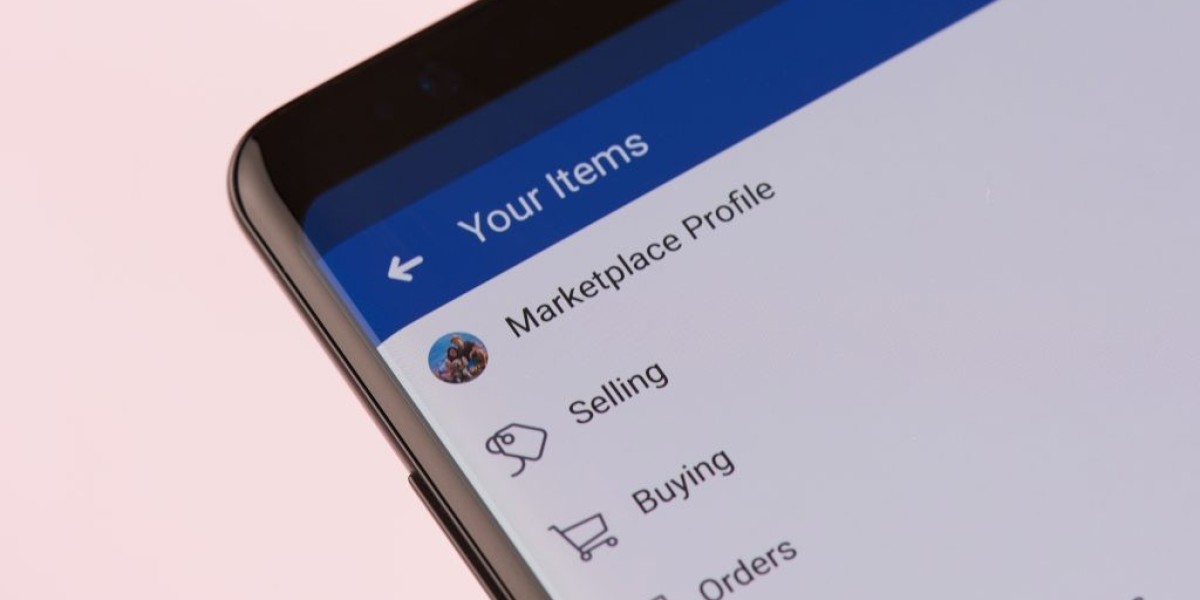Pros of Restoring Access to Facebook Marketplace
Access to a Large and Diverse Market:
- Restoring access means re-entry into a vast marketplace with a wide array of products and services. This diversity caters to different needs and preferences, providing a one-stop shop for various items.
Local Community Engagement:
- Marketplace facilitates local transactions, allowing users to engage with their community. This can lead to building relationships and trust within the local area, and also supports local businesses and individuals.
Cost-Effective Buying and Selling:
- With no listing fees or commissions, Marketplace is a cost-effective option for both buyers and sellers. It provides an affordable platform for small businesses and individuals to sell products.
Convenience and Accessibility:
- Being integrated into Facebook, Marketplace offers the convenience of managing sales and purchases within a familiar platform. This integration allows for seamless access and use.
Opportunity for Small Business Promotion:
- For small businesses, Marketplace offers a platform to promote their products to a local audience. It's an effective way to increase visibility and reach potential customers.
User-Friendly Interface:
- Facebook Marketplace has an intuitive and user-friendly interface, making it easy for anyone to navigate, regardless of their technical expertise.
Cons of Restoring Access to Facebook Marketplace
Potential for Scams and Fraud:
- The open nature of the platform can make users susceptible to scams and fraudulent activities. There's a risk of encountering dishonest sellers or buyers.
Privacy Concerns:
- Engaging in transactions requires sharing personal information, which can raise privacy concerns. Users may be wary of the data shared on the platform and with other users.
Quality and Authenticity Issues:
- There’s no guarantee of the quality or authenticity of items sold. Buyers need to be cautious and conduct due diligence to avoid purchasing counterfeit or substandard products.
Lack of Official Customer Support:
- Facebook Marketplace primarily relies on community self-regulation, with limited official support for dispute resolution. This can be challenging for users facing transactional issues.
Overreliance on Local Market:
- The focus on local buying and selling can be limiting, especially for users looking to reach a broader market or those in less populated areas.
Competition and Market Saturation:
- The ease of access to Marketplace can lead to market saturation, where too many similar products are available, making it challenging for sellers to stand out.
Inconsistent Enforcement of Rules and Policies:
- Facebook’s enforcement of Marketplace policies can sometimes be inconsistent or unclear, leading to confusion and potential unfair treatment.
Risk of Account Issues:
- Misuse or misunderstanding of Marketplace rules can lead to account restrictions or bans, potentially affecting one’s ability to use other Facebook services.
Conclusion
Restoring access to Facebook Marketplace can offer significant benefits, including access to a large and diverse market, community engagement, and cost-effective transactions. However, it also comes with challenges like potential scams, privacy concerns, and quality issues. Users need to navigate these pros and cons carefully, ensuring they use the platform responsibly and effectively.
What Is Facebook Marketplace?
Facebook Marketplace is an online marketplace feature embedded within the Facebook platform, allowing users to buy, sell, and trade items with others in their local community and beyond. It was launched by Facebook in 2016 as a response to the growing trend of users buying and selling items within Facebook groups.
Marketplace has since evolved into a widely used platform for person-to-person commerce, directly competing with other online marketplaces like Craigslist and eBay.
Key Features of Facebook Marketplace
Local and Global Buying/Selling:
- Primarily focuses on local transactions, but also allows users to expand their search to wider geographical areas.
- This feature facilitates both community-centric transactions and broader e-commerce opportunities.
Diverse Product Categories:
- Users can browse through various categories, including but not limited to, home goods, electronics, apparel, vehicles, and even real estate.
- This wide-ranging category system caters to a multitude of user needs and interests.
Integration with Facebook Profile:
- Marketplace is integrated into the existing Facebook platform, using one's Facebook profile for transactions.
- This integration provides a level of transparency and potential trust between buyers and sellers.
Search Functionality and Filters:
- Users can search for specific items and apply filters like price, location, and product category for a more refined search.
- The platform’s search algorithm also suggests items based on a user's Facebook activity and preferences.
No Listing Fees:
- Unlike some traditional online marketplaces, Facebook Marketplace does not charge listing fees, making it accessible to a wide range of users.
- This feature is particularly beneficial for small-scale sellers and casual transactions.
Easy Listing Process:
- The process of listing an item for sale is straightforward, involving simple steps like uploading photos, adding a description, setting a price, and choosing a location.
Community Groups:
- Users can also access various buy and sell groups on Facebook, catering to specific interests, communities, or locations.
- These groups often provide more targeted platforms for buying and selling within specific communities.
User Experience in Facebook Marketplace
Accessibility and Ease of Use:
- Marketplace is known for its user-friendly interface, making it easy for users of all ages and technical abilities to navigate.
- The platform is accessible via the Facebook app and website, offering convenience for mobile and desktop users.
Communication Tools:
- Transactions are facilitated through Facebook Messenger, allowing for direct and immediate communication between buyers and sellers.
- Messenger integration also enables quick responses and negotiation.
Rating and Review System:
- Although not as robust as some other platforms, there is a basic system for users to leave ratings and reviews, enhancing trust and accountability.
Challenges and Limitations of Facebook Marketplace
Lack of Payment and Shipping Infrastructure:
- Marketplace does not provide a built-in payment or shipping system, leaving users to arrange these logistics independently.
- This absence can complicate transactions, especially for long-distance deals.
Quality Control and Scams:
- The platform has limited mechanisms for quality control or authenticity verification of items, increasing the risk of scams and counterfeit products.
- Users must exercise caution and perform due diligence during transactions.
Privacy Concerns:
- Conducting transactions through personal Facebook profiles can raise privacy concerns, as it may reveal more personal information than users are comfortable sharing.
Dispute Resolution:
- Marketplace provides limited support for dispute resolution, often directing users to resolve issues amongst themselves.
- This lack of support can be challenging in cases of disputes or fraud.
Conclusion
Facebook Marketplace is a dynamic and user-friendly platform for local and global online commerce, embedded within the popular social media site. It offers a wide variety of items, ease of use, and the convenience of leveraging existing social networks for transactions.
However, users must navigate challenges such as the lack of a built-in payment system, potential quality issues, and privacy concerns. Despite these limitations, Marketplace continues to grow in popularity, offering an accessible and integrated solution for online buying and selling.



